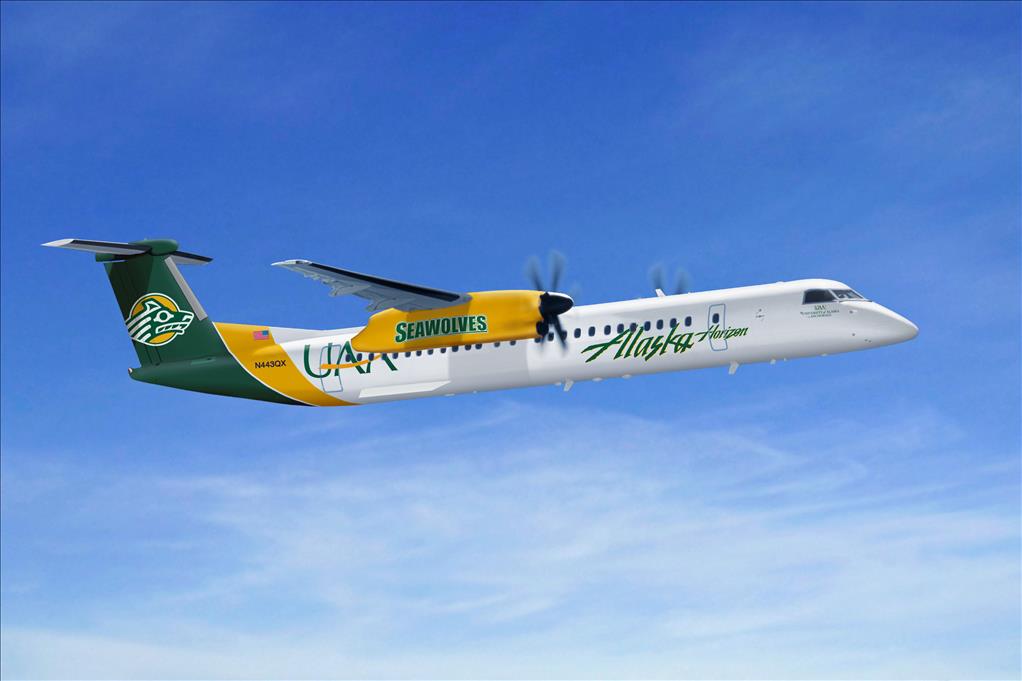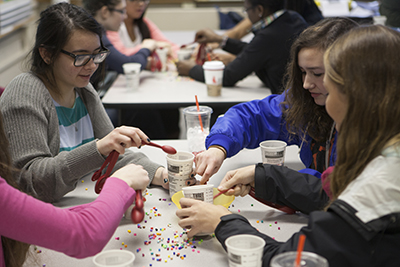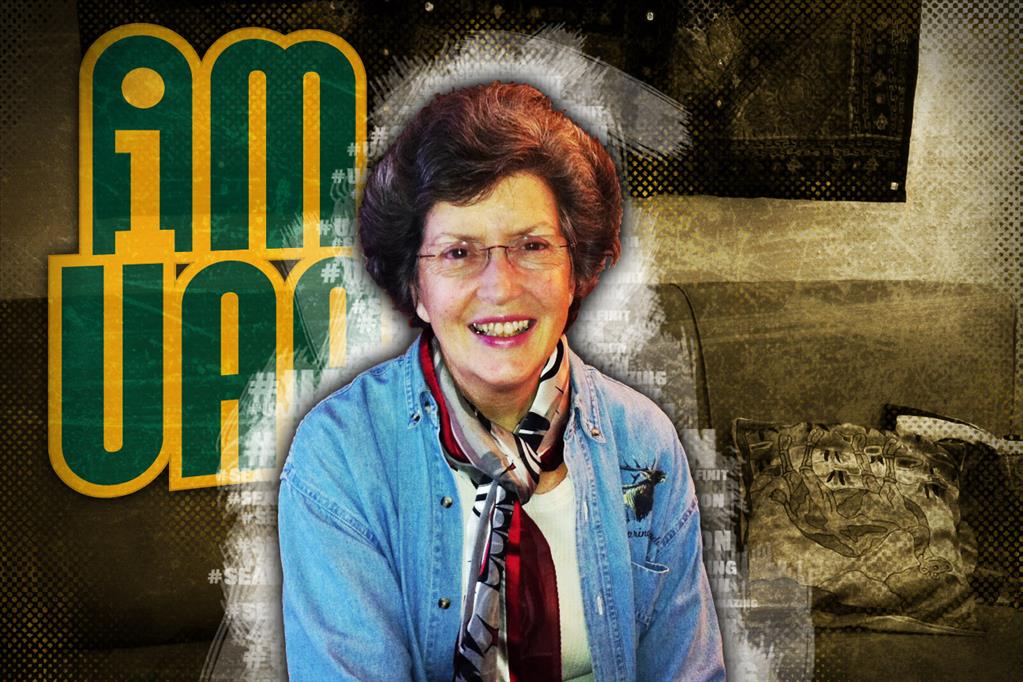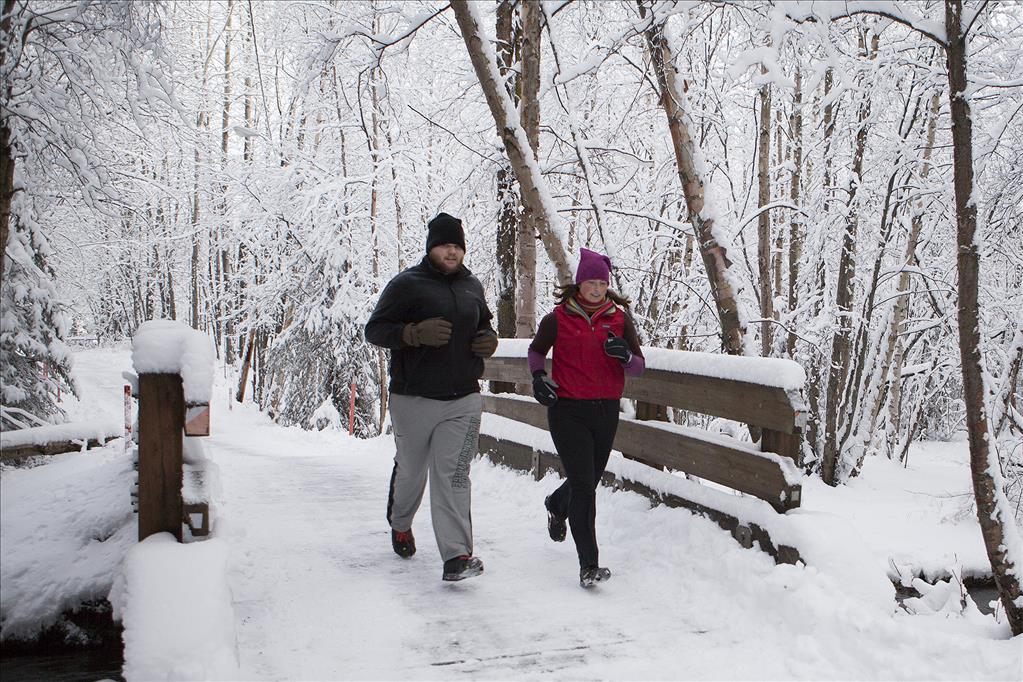Alumni Spotlight: Tina Woods
by Jamie Gonzales |
 I AM UAA: Tina Woods
I AM UAA: Tina Woods
B.A. Psychology '99, M.S. Clinical Psychology '10, Ph.D. Clinical-Community Psychology
'13
Hometown: St. Paul, Alaska
Fun Fact: Loves watching Food Network Channel's Chopped & Cupcake Wars
Tina Woods never imagined she'd be an alumna of UAA; in fact, she never really considered herself to be much of a student. But her passion for the health of the Alaska Native community and fate brought Tina to UAA not once, but three times.
Today this three-time psychology alumna laughs when she remembers wanting to become a lawyer. "I don't know what I was thinking," she says. "I wasn't cut out for that."
Luckily for Tina, fate stepped in and steered her in a different direction. A chance encounter with a chiropractor and his wife at a friend's wedding had Tina consider becoming a massage therapist. Tina was trained on the job at the chiropractic clinic to conduct massage therapy and other therapeutic treatments. In her first year on the job, she made a discovery. "While I did massage, I realized I was a natural listener. People told me about their lives. I liked listening to people and validating them," she says.
Tina soon decided to take a psychology class at UAA. "I just remember thinking human relations was easy. It came so natural to me, so I went for it," she says.
Tina earned her bachelor's degree in 1999 and never intended on going back to school. She worked for the Aleutian Public Relations Association where she saw first-hand the challenges Alaska Natives face in the community and the state, and she wanted to make a difference. Recognizing a need for an advanced degree she began studying for a master's degree in public health. While studying part-time in UAA's master's in public health program she worked full-time at the Aleutian Pribilof Islands Association, where she met her husband.
In 2006, she had another brush with serendipity. Tina was presenting at an Alaska Native elders conference in Sitka and bumped into Dr. Rosellen Rosich, a former UAA undergraduate professor.
"She told me they were starting a new program that focused on rural and indigenous populations. I remember my heart started pounding and that's all it took," Tina said. On the plane ride back to Anchorage, Tina started working on her application into the Joint UAA-UAF Clinical-Community Psychology Ph.D. program.
Going back to school a third time presented a lot of challenges, especially while working and taking care of her daughter Jasmine. She quickly realized graduate school was no joke.
"There were lots of late nights where I would be up until 3 a.m. grinding away on a paper. I just remember thinking I can sleep when I graduate," she says.
After completing her master's coursework, Tina and her husband Daniel wanted to have a baby. "I'm just glutton for punishment, I guess. After preparing for an internship and dissertation, we had our son Hunter. He's now two years old."
Tina finished her master's degree in 2010 and continued on the journey toward earning her doctorate soon after.
So how did Tina spend time with her family, work full time and manage being a student in a Ph.D. program?
"It took a lot of physical stamina," she says. She admits there must be passion for the intellectual pursuit of knowledge and, in her case, an unwavering commitment to the wellbeing of Alaska Native people. During the process she sacrificed sleep, exercise and sometimes even sound nutrition to balance family and academic life.
She firmly believes students must have a support system, especially someone on the faculty that can help guide and provide direction to reach the light at the end of the tunnel.
"The support of my husband, my peers and my advisor, Dr. E.J. David, kept me motivated," she says.
After more than 10 years as a UAA student, it was with a great sense of satisfaction that she finished the program. Still, she's a little uncomfortable using her newly earned title.
"Dr. Woods, it sounds strange to me," she says. Rather than simply achieving this status, she sees herself as becoming "a bridge between two worlds." She is trained as a Western scientist and at the same time she has tremendous respect for the knowledge of elders throughout the Alaska Native community.
Alaska Native elders have valuable wisdom about the human condition and how to navigate life, she says. An example she offers is the harmony between the mind, body and spirit.
"The elders tell us that if you sit with anger, you will feel stress and your physical body will deteriorate. You can internalize this anger and that has implications for your health."
Western science has validated this with the recent Adverse Childhood Experiences (ACES) study, she said, which analyzes lingering and detrimental effects of those experiences.
"I feel obligated, out of respect, to bring their message to the table, and to help translate it so that the Western world can understand it," Tina said.
Tina's thesis was titled, "A Comparison between Talking Circles and Mainstream Student Support Groups for College Life Adjustment with Alaska Native Students."
Tina is already using her studies in work with the Aleutian Pribilof Islands Association, managing their behavioral health and wellness programs. She is also serving as chairperson for the statewide Tribal Behavioral Health Directors Committee. This is a key opportunity, she believes, to be at the table where important decisions about the wellbeing of Alaska Natives will be discussed and decided.
"I never dreamt I'd have a doctorate or be where I am today, but if I can do it anyone can."
 "Alumni Spotlight: Tina Woods" is licensed under a Creative Commons Attribution-NonCommercial 4.0 International License.
"Alumni Spotlight: Tina Woods" is licensed under a Creative Commons Attribution-NonCommercial 4.0 International License.














